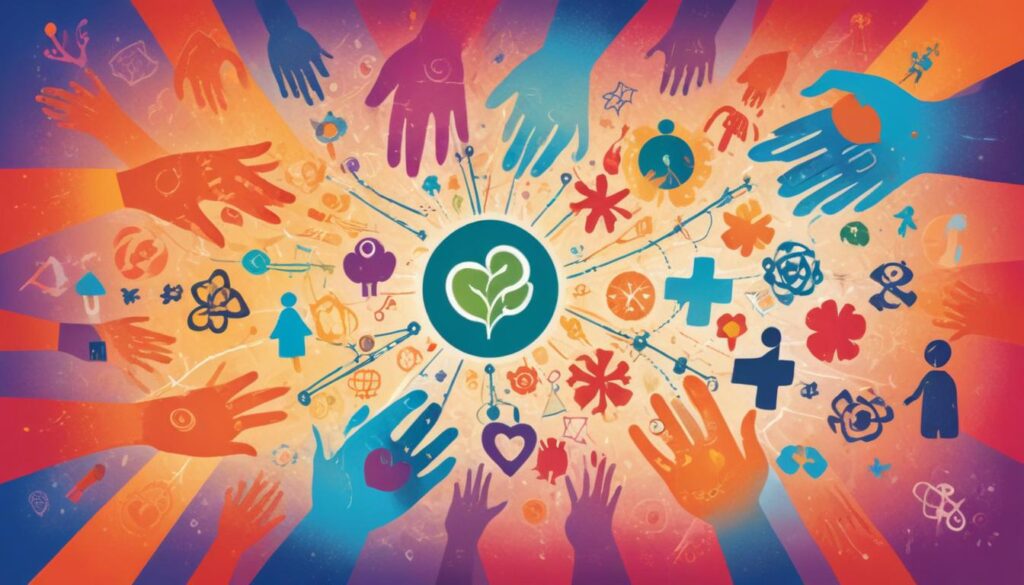Sustainable procurement integrates eco-friendly practices within supply chains, emphasizing the importance of cost management and supplier collaboration to meet climate regulations and enhance overall efficiency in business operations.
Inverto is revolutionizing the world of procurement. With **supply chain** sustainability at its core, this consultancy is making waves by integrating environmental considerations into their strategies. Curious about how they do it?
Inverto: A Brief Overview
Inverto has established itself as a key player in the realm of sustainable procurement. With nearly three decades of experience, the firm specializes in optimizing supply chains while embedding sustainability at every level of its operations. By leveraging data analytics and innovative strategies, Inverto aims to reduce environmental impacts while ensuring cost-effectiveness.
Over the years, Inverto has developed a robust framework for evaluating suppliers and assessing their sustainability practices. This helps businesses make informed decisions and fosters a culture of transparency. In addition, their collaboration with firms like Boston Consulting Group enhances their capabilities, providing cutting-edge solutions tailored to modern challenges.
The company’s commitment to sustainable supply chains does not stop at compliance. Inverto actively promotes best practices that align business goals with environmental stewardship. Their approach not only meets regulatory requirements but also prepares companies for future eco-conscious standards. By focusing on both ecological and economic aspects, Inverto supports businesses in navigating the complexities of today’s supply chains.
Through continuous improvement and adaptation, Inverto remains at the forefront of the procurement sector, helping organizations achieve their sustainability objectives effectively.
The Evolution of Procurement
The evolution of procurement has been shaped by technological advancements and shifting market dynamics. Initially seen as a back-office function, procurement has now taken center stage in strategic business planning. Companies realize that effective procurement can significantly impact both cost savings and sustainability.
In recent years, organizations have adopted digital tools and analytics, transforming their procurement practices. With the rise of e-procurement platforms, businesses can streamline their purchasing processes, leading to increased efficiency and transparency. These platforms also facilitate better supplier relationship management, allowing for more collaborative and sustainable partnerships.
Another notable trend is the focus on sustainability in procurement. Today’s consumers are more environmentally conscious, pushing companies to source responsibly. This shift is prompting organizations to prioritize vendors who adhere to eco-friendly practices. As a result, sustainable procurement is no longer just an option; it has become essential for competitive advantage.
Furthermore, the global supply chain disruptions experienced recently have highlighted the need for greater resilience in procurement. Companies are now reassessing their supply chains, seeking to diversify sources and mitigate risks. Adaptability has become a critical goal, ensuring that organizations can respond swiftly to unforeseen challenges.
Partnership with Boston Consulting Group
The partnership between Inverto and Boston Consulting Group (BCG) marks a significant evolution in procurement strategies. By combining their expertise, both firms aim to enhance supply chain efficiency and drive sustainable practices. This collaboration leverages BCG’s deep industry insights and Inverto’s proven methodologies, creating a powerful synergy.
BCG’s analytical tools and frameworks complement Inverto’s focus on data-driven decision-making. This partnership enables organizations to tap into advanced analytics to identify opportunities, streamline processes, and mitigate risks. Clients benefit from tailored solutions that address specific challenges while promoting sustainability across their supply chains.
The goal of this alliance is not only to improve operational performance but also to align procurement practices with corporate social responsibility objectives. Together, they emphasize the importance of responsible sourcing and strive to embed sustainability into all procurement activities. This forward-thinking approach helps companies navigate the complex landscape of regulatory requirements and consumer expectations.
The collaboration has proven effective in various sectors, leading to innovative strategies that deliver measurable results. By harmonizing their strengths, Inverto and BCG are setting new standards for sustainable procurement, reinforcing their commitment to creating long-term value for clients and society alike.
Global Expansion: New Offices
Inverto’s global expansion strategy has led to the establishment of new offices in strategic locations worldwide. This move reflects the firm’s commitment to enhancing supply chain solutions and provides local expertise to clients across diverse markets. By opening offices in key regions, Inverto can better serve its international clientele and respond to specific market needs.
The new offices are equipped with state-of-the-art technology, enabling teams to deliver innovative sustainable procurement solutions tailored to regional challenges. This localization fosters agility and allows for faster decision-making processes, which are critical in today’s rapidly changing business environment.
With an emphasis on sustainability, these global offices aim to drive eco-friendly practices in procurement. By integrating local suppliers who adhere to sustainable standards, Inverto helps clients minimize their ecological footprints while optimizing costs. This approach resonates with businesses that prioritize Corporate Social Responsibility.
Moreover, the expansion signifies Inverto’s dedication to fostering a global network of professionals. Each new location recruits talented individuals passionate about driving change in procurement practices. This synergy between local insights and global strategies positions Inverto as a leader in sustainable procurement on the international stage.
Brand Identity Refresh
Inverto has recently undertaken a brand identity refresh to align itself with its core values and vision for the future. This transformation underscores the firm’s commitment to sustainability and innovation in procurement strategies, reflecting a modernized approach to business in a rapidly evolving market.
The new brand identity features a revitalized logo and a cohesive color palette that symbolizes eco-friendliness and professionalism. By incorporating elements that resonate with environmental responsibility, Inverto aims to enhance its appeal to clients who prioritize sustainable practices. This visual update not only modernizes the firm’s appearance but also strengthens its market position.
Additionally, the brand refresh includes a comprehensive digital strategy. An updated website and enhanced social media presence help showcase Inverto’s expertise in sustainable procurement, making it easier for clients to access information and engage with the firm. This digital transformation reinforces the message that Inverto is at the forefront of the industry.
Through this brand identity refresh, Inverto aims to forge stronger connections with its stakeholders. The goal is to communicate a clear narrative about its mission and values. By embodying the principles of sustainability and innovation, Inverto is poised to lead the conversation in the procurement sector.
Addressing Sustainability Challenges
Addressing sustainability challenges has become a priority for businesses worldwide. Companies are increasingly recognizing the importance of implementing sustainable practices within their supply chains. These practices not only benefit the environment but also offer significant long-term economic advantages.
Inverto focuses on identifying key sustainability issues that clients face. This involves assessing the impact of current procurement processes on the environment. By analyzing emissions, resource consumption, and waste generation, organizations can pinpoint areas for improvement. Creating a comprehensive sustainability assessment allows companies to develop targeted strategies.
Moreover, fostering collaboration with suppliers is crucial in overcoming sustainability challenges. Inverto emphasizes the importance of building strong relationships with vendors who share the same sustainability goals. Working together, companies can implement eco-friendly practices and promote responsible sourcing. This joint effort is essential for creating a resilient supply chain.
Education and training programs are also vital in addressing sustainability challenges. Suppliers and procurement teams must understand the significance of sustainable practices to drive change effectively. Inverto provides resources and workshops to empower stakeholders with the knowledge needed to embrace sustainability.
By tackling these challenges head-on, companies not only enhance their environmental performance but also bolster their reputation among consumers who prioritize sustainability. Ultimately, the journey toward sustainability requires commitment, collaboration, and innovative thinking.
Implementing Effective Procurement Strategies
Implementing effective procurement strategies is essential for organizations seeking to optimize their operations and achieve sustainability goals. A successful procurement process begins with a thorough understanding of market dynamics and requires aligning the procurement strategy with overall business objectives.
Companies must evaluate their current procurement practices to identify areas for improvement. This includes analyzing supplier performance, cost management, and compliance with sustainability standards. By employing data-driven insights, organizations can make informed decisions that enhance efficiency and reduce costs.
Collaboration with suppliers plays a key role in fostering effective procurement. Building strong partnerships allows companies to access better resources, technology, and sustainable practices. Additionally, engaging suppliers in the development of procurement strategies can lead to innovative solutions that benefit both parties.
Technology also transforms procurement strategies. Utilizing digital tools, such as e-procurement platforms, automates processes and streamlines communication with suppliers. These platforms enable organizations to maintain comprehensive records, assess supplier performance, and enhance visibility across the supply chain.
Furthermore, workforce training is critical for the success of procurement strategies. Equipping teams with knowledge about sustainable practices and negotiation skills empowers them to drive positive change. Implementing effective procurement strategies not only strengthens operational performance but also enhances the company’s reputation in the eyes of consumers.
Balancing Cost and Sustainability
Balancing cost and sustainability is a critical challenge for organizations striving to thrive in today’s competitive market. As businesses aim to reduce their environmental impact, they must also ensure that operations remain financially viable. Achieving this balance requires a strategic approach that integrates sustainable practices without sacrificing profitability.
One effective way to harmonize cost and sustainability is through innovative procurement strategies. By focusing on sourcing materials and services from suppliers who prioritize eco-friendly practices, companies can often find cost savings in the long run. For instance, investing in sustainable materials may have a higher initial cost but can reduce waste and improve efficiency over time.
Data analytics plays a key role in identifying opportunities for balancing costs with sustainability. By leveraging analytics, organizations can track their resource usage and measure the sustainability of their supply chains. This insight allows companies to make informed decisions about supplier selection and process improvements, aligning financial goals with environmental responsibilities.
Additionally, engaging stakeholders in creating a sustainability roadmap can drive collective efforts toward achieving cost-efficient solutions. Training employees on sustainable practices fosters a culture of awareness and responsibility, leading to innovative ideas that reduce costs while enhancing overall sustainability efforts.
Ultimately, organizations that successfully balance cost and sustainability not only enhance their reputation but also position themselves for long-term success in an increasingly conscientious consumer marketplace.
Case Studies in Action
Case studies in action demonstrate the practical application of sustainable procurement strategies across various industries. These real-world examples provide valuable insights into how organizations effectively address challenges related to cost, efficiency, and environmental impact.
One notable success story involves a leading manufacturing firm that implemented a robust sustainability initiative within its supply chain. By collaborating with suppliers who adhered to eco-friendly practices, the company significantly reduced waste and improved resource efficiency. The results were not only environmentally beneficial but also led to substantial cost savings, showcasing that sustainability and profitability can go hand in hand.
Another compelling case study features a retail giant that integrated data analytics into its procurement process. By tracking the sustainability performance of its suppliers, the company identified high performers and fostered partnerships that prioritized responsible sourcing. This approach not only enhanced the brand’s reputation but also attracted environmentally conscious consumers, driving sales and customer loyalty.
Additionally, in the tech industry, a global company successfully transitioned to sustainable materials in their products. This switch reduced carbon emissions and appealed to a growing market segment that values corporate responsibility. The strategy resulted in positive media coverage and bolstered the company’s position as a leader in sustainability.
Through these case studies, organizations can learn valuable lessons and apply insights that lead to effective sustainable procurement practices.
Compliance with Climate Regulations
Compliance with climate regulations is a pivotal aspect of modern procurement strategies. As governments around the world tighten regulations aimed at reducing carbon emissions, it becomes crucial for organizations to adapt their practices accordingly. Meeting these standards not only ensures legal compliance but also enhances a company’s reputation and competitiveness in the market.
To effectively comply with climate regulations, businesses must first understand the specific requirements that apply to their operations. This includes assessing emissions targets, reporting obligations, and potential penalties for non-compliance. By staying informed of legislative changes, organizations can proactively adjust their strategies to avoid risks associated with non-compliance.
Integrating sustainability into the procurement process is essential for aligning with climate regulations. This entails sourcing materials that generate fewer emissions and partnering with suppliers committed to sustainable practices. By choosing eco-friendly options, companies can significantly reduce their carbon footprint while fulfilling regulatory requirements.
Furthermore, utilizing technology can streamline compliance processes. Advanced software solutions allow organizations to track emissions data, generate compliance reports, and audit supplier practices efficiently. This not only simplifies compliance but also provides valuable insights for ongoing improvements.
Ultimately, by prioritizing compliance with climate regulations, organizations can position themselves as leaders in sustainability while contributing to global efforts to combat climate change.
Future Vision for Sustainable Supply Chains
The future vision for sustainable supply chains revolves around innovation, technology, and collaboration. As global demands evolve, organizations are increasingly prioritizing sustainability in their procurement practices. This shift is driven by the need to address environmental challenges while maintaining profitability and competitiveness.
One key aspect of this future vision is the integration of advanced technologies. Tools such as artificial intelligence, blockchain, and the Internet of Things (IoT) are revolutionizing supply chain management. AI can optimize logistics, reduce waste, and enhance decision-making processes by analyzing vast amounts of data in real time. Blockchain provides transparency and traceability, ensuring that sustainable practices are followed throughout the supply chain.
Moreover, fostering collaboration among stakeholders is essential for achieving sustainability goals. Partnerships with suppliers, customers, and even competitors can lead to shared resources and knowledge. By working together, organizations can develop innovative solutions that benefit both the environment and their bottom line.
Education and awareness also play vital roles in shaping the future of sustainable supply chains. As more businesses recognize the importance of sustainability, training and resources will become increasingly available. This will empower teams to make informed decisions that prioritize eco-friendly practices.
Ultimately, the future of sustainable supply chains lies in embracing innovation while fostering a culture of responsibility and collaboration across the entire ecosystem.
Embracing Sustainable Procurement for a Brighter Future
In summary, sustainable procurement is not just a trend; it is a vital strategy for businesses aiming to thrive in today’s marketplace. As companies face growing pressures to reduce their environmental impact, adopting green practices becomes essential.
By implementing effective procurement strategies, businesses can achieve cost savings while contributing to a healthier planet. The integration of technology and collaboration with suppliers will help organizations meet climate regulations and address sustainability challenges.
Looking toward the future, the vision for sustainable supply chains will continue to evolve. Companies that embrace innovation, invest in training, and prioritize eco-friendly practices will be well-positioned for success.
Ultimately, making sustainability a core value will not only enhance a company’s reputation but also connect with consumers who are increasingly making environmentally conscious choices.
Frequently Asked Questions
What is sustainable procurement?
Sustainable procurement refers to the process of acquiring goods and services in a way that contributes to environmental, social, and economic sustainability.
Why is sustainability important in supply chains?
Sustainability is crucial in supply chains as it helps reduce environmental impact, fosters ethical practices, and meets the growing demand from consumers for eco-friendly products.
How can technology improve sustainable procurement?
Technology enhances sustainable procurement by providing tools for data analytics, supplier transparency, and automated processes, allowing organizations to make informed and responsible choices.
What role do suppliers play in sustainable procurement?
Suppliers are essential in sustainable procurement as their practices can significantly impact a company’s overall sustainability efforts; partnering with responsible suppliers fosters better environmental practices.
How can organizations measure the effectiveness of their sustainable procurement practices?
Organizations can measure effectiveness through key performance indicators (KPIs), such as the reduction of waste, cost savings, and compliance with sustainability regulations.
What challenges do businesses face in adopting sustainable procurement?
Common challenges include initial costs, resistance to change, a lack of supplier engagement, and difficulties in measuring sustainability metrics.


